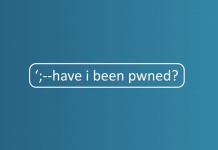

Of all the debt collection scams, the ones that inspire the greatest panic come over the phone. A menacing, often almost incomprehensible voice, claiming to represent a creditor, demands immediate payment of a supposed debt. Otherwise, the caller threatens, the consumer could be arrested and thrown in jail.
“Outrageous!” we tell the many consumers who contact us every week seeking help after being cowed and frightened by these bullies’ threats. To each of them, we repeat the same advice: “Ignore their calls. Report them to local law enforcement.”
But what if local law enforcement is the source of those threats?
In some 300 communities across the United States, that’s exactly what’s happening. From Baltimore to Los Angeles, prosecuting attorneys are renting out their letterhead — and their law enforcement clout and credibility — to debt collection companies, as a recent exposé in the New York Times revealed. Using the name and official seal of the prosecutor’s office to give weight to their threats, these private companies — with no legal authority whatsoever — then send out letters to debt-challenged consumers threatening criminal prosecution and possible jail time if they don’t pay up.
And here’s the kicker: having convinced consumers that they’ll end up in handcuffs if they don’t cover their supposed debts, these weasels then try to dupe them into shelling out another $170 or so for a class on financial responsibility. Where does that money go? It’s split between the debt collection company and (wait for it) the prosecutor’s office.
How bad does this stink? Let me count the ways.
First of all, the district attorney is an elected representative with a sacred public trust: to enforce the rule of law. Before prosecuting a case, the prosecutor’s office has a duty to weigh the evidence, evaluate possible outcomes, and choose the course that best serves the public. That process should be thoughtful and impartial, with all citizens treated equally before the law, to ensure that justice is served in each and every instance.
When we elect a DA, we’re entrusting them with the power and prestige of the American criminal justice system — not inviting them to pass out guns and badges to random individuals with agendas of their own. And we most assuredly do not want them empowering private parties to pose, even implicitly, as public prosecutors — especially in pursuit of private gain.
This is one of many reasons why, if we do start deputizing private businesses, debt collectors might not be the best place to start. For one thing, as recent news reports show, we can’t always count on them to tell the truth. The case at hand is a case in point.
Consider what’s happening here. The debt collection companies are using the letterhead of the prosecutor’s office to threaten consumers with criminal prosecution and possible jail time. In reality, they’re in no position to back that threat up — but from reading the letter, the consumer has no way to know that. The truth is that in the vast majority of cases, the prosecutor’s office has no idea when these letters are mailed or who is receiving them, and has conducted no investigation to determine whether the claim of unpaid debt is actually true. Thus, the debt collectors are apparently mailing official letters without effective oversight — and often without even having the evidence they would need to prove that the recipients actually owe the alleged debts. In short, no case.
“I would say that roughly 90 percent of the credit card lawsuits are flawed and can’t prove the person owes the debt,” Noach Dear, a civil court judge in Brooklyn who sees up to 100 such cases a day, told the New York Times.
This is, indeed, outrageous. To have prosecuting attorneys renting out their letterhead to private companies at all diminishes their office and, at the end of the day, betrays the public trust. To do this without weighing the merits of each individual case betrays the fundamental American ideal of due process and turns the phrase “innocent until proven guilty” on its head. Finally, to allow private companies to use the power and prestige of public office to coerce consumers, using the fear of criminal charges and imprisonment to bully them into compliance — well, that is so clearly abusive that it’s hard to imagine how anyone could defend it (not that they haven’t tried).
When questioned, the prosecutors retort that renting out their stationery lightens the taxpayers’ burden by raising money (albeit it blood money) for their own cash-strapped operations while keeping bounced-check cases from clogging the courts. “I view it as quite a win-win,” Scott D. Shellenberger, Baltimore County State’s Attorney, told the Times. “You aren’t criminalizing someone who shouldn’t have a criminal record, and you are getting the merchant his money back.”
In fact, it’s a lose-lose-win. Consumers lose by getting intimidated into spending their limited funds on bogus financial education classes. Prosecutors lose clout and dignity. The only winners here are the debt collectors, who win their money and their fees no matter the impact on consumers or the justice system.
Now, I’m more sensitive than many to the needs of our outgunned, overloaded, underfunded justice system. As the former New Jersey Director of Consumer Affairs, who worked in the Office of the Attorney General, I’ve seen first-hand that for too many fraud victims — whether consumers or businesses — justice delayed is justice denied.
In this case, however, the prosecutors’ argument is as disingenuous as the letters themselves. A minority stake in a $170 fee doesn’t generate much in the way of revenue — and whatever money it does generate cannot possibly be enough to offset the harm done to consumers who may be getting railroaded by false collection notices. Add to that the money some prosecutors are spending to defend themselves against lawsuits brought by consumer lawyers, who contend — I believe correctly — that this practice violates several of the supposedly inviolable pillars of the American justice system.
As Paul Arons, a consumer attorney in Washington state, told the Times, “This is guilty until proven innocent.”
As we all know, that is the very opposite of the way it’s supposed to go. Before a prosecutor uses the power of his or her office to help a private company collect money from an individual accused of bouncing a check, that office should first investigate the allegation, then make a probable cause determination that the check was bounced on purpose. Unless a prosecutor has the staff available to ride shotgun on these cases, making sure that each consumer who receives a collections notice actually owes that debt, the letters should not bear that prosecutor’s name and seal. To do otherwise undermines the integrity of his or her office.
Furthermore, do prosecutors really want to entrust their good names to the scandal-plagued debt collection industry — potentially putting both their office and their future political careers on the line — over bounced checks and a paltry payback? That’s not just bad justice, it’s also bad strategy. Here’s a political prediction: The first family wrongfully pushed into bankruptcy or foreclosure by one of these collection letters will be the last court case that prosecutor tries.
Finally, let’s take a harder look at these “financial responsibility” classes. What legal or judicial purpose could they possibly serve? If a person defrauds a retailer by deliberately kiting a check, the issue isn’t financial responsibility — it’s criminal intent. The proper response isn’t a menacing letter — it’s jail time.
But the vast majority of people who receive these letters are not criminals — they’re ordinary Americans who honestly believed they had the money to cover a purchase. Besides, it’s not as though they won’t suffer for their mistake: the fees imposed by banks and retailers in such cases inflict significant pain, especially for people of limited means. They know they goofed, and rattling legal sabers or coercing them into spending $170 on a bogus class won’t change that. What’s more, while it might be financially expedient for prosecutors and debt collectors, using the power of law enforcement to coerce consumers into spending money they don’t have is no way to teach financial responsibility. Frankly, it denigrates the concept of financial literacy.
Both in 2010 and the current election cycle, we are witnessing the harsh reality of a political system that is up for sale. American justice has always been special and the system must not be sold to the highest bidder — not to lobbyists, not to politicians, and certainly not to debt collectors. District attorneys cannot continue to sully their reputations and demean our institutions by renting out their letterhead to the lowest life form that bids. As citizens and as consumers, we deserve better.
Originally posted at the Huffington Post.









